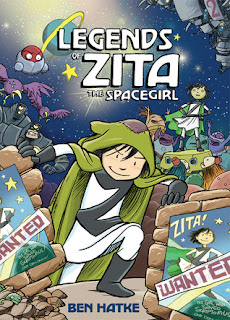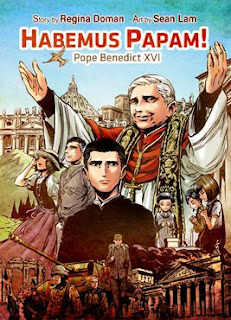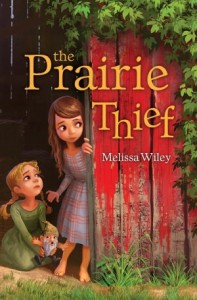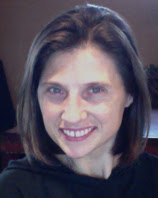Following is my column that appears in the current print edition of The Catholic Post. This will be my last regular column for The Catholic Post, but I may be filling in occasionally.
This marks my final regular monthly column reviewing books for The Catholic Post. After more than eight years, hundreds of books reviewed, and nearly 100 columns and “Reader” profiles, I’ll be stepping away from writing book reviews to pursue other projects.
To be honest, I’m uneasy about what this change in status will mean for my spiritual life & prayer life.
Searching out and reading good Catholic books has become normal these past eight years. I’ve spent hours in adoration reading potential good books—an excellent way to discern whether a book is review-worthy. And because my husband Joseph has been the first reader of my columns, his feedback and our discussions as I fine-tune my thoughts have strengthened our spiritual friendship in marriage.
I’ve heard from many readers over the years about books that have helped or edified them, but truthfully, I am the one who has been most enriched by writing about Catholic books. I will always be grateful for this opportunity and my years here, and the careful editing and guidance of Tom Dermody, the editor of The Catholic Post.
Here are some of the “takeaways” that I’ve learned. I hope you will remember them, too:
- Catholic memoirs and spiritual biographies are an excellent genre for the reader’s spiritual growth & learning.
Memoirs, including spiritual biographies, can be very inconsistent in quality. While I’m not a fan of much modern memoir types, I have found numerous good examples in Catholic books old and new. I’ve written about ones as varied as the first book I ever reviewed, Venerable Fulton Sheen’s classic Treasure in Clay. Other great spiritual memoirs include He Leadeth Me by Fr. Walter Ciszek, The Fourth Cup by Scott Hahn, and The Ear of the Heart: An Actress’ Journey from Hollywood to Holy Vows by Mother Dolores Hart.
2. Not all “Catholic” books are written by Catholics, or from Catholic publishers.
One of the most discussion-worthy books I’ve read in recent years is Atul Gawande’s Being Mortal: Medicine and What Matters in the End, which explores the area of death and dying, including wisdom from medieval monks, and what that means in today’s culture. In addition, books like Michael Pollan’s Cooked offer incarnational perspective on the goodness of creation.
3. Catholic authors are good for different audiences.
As I’ve written before, very few books are good for every Catholic reader, but that doesn’t mean there isn’t something for everyone among Catholic books.
To consider two audiences:
For kids and teens, there is everything from saint biography books like Ablaze, & Radiate by Colleen Swaim, saint-inspired fiction like the charming, Olivia and the Little Way by Nancy Carabio Belanger, and practical works such as Your College Faith: Own It! and How I Stayed Catholic at Harvard.
For moms, there are a range of books, and newer ones released almost every year, on motherhood and balance, from pregnancy and early childhood in “Made for This” to parenting for your child’s personality in books like “The Temperament God Gave Your Kids.”
4. Praise God, the saints come in all types, sizes, and spiritualities.
I’m not going to name names, but certain saints inspire in me not devotion, but gratitude that God made all kind of people capable of becoming saints. A friend is fond of saying that the spiritual life is “individual as a fingerprint.” Readers can easily find a saint, spirituality to suit, though I have found it spiritually edifying to stretch outside my comfort zone when it comes to reading about the saints.
Some of my favorite books about saints and spiritualities include How to Pray the Dominican Way: Ten Postures, Prayers and Practices that Lead Us to God by Angelo Stagnaro, Introduction to the Devout Life by St. Francis de Sales, and My Sisters the Saints by Colleen Carroll Campbell.
5. Healing can begin with reading books.
Some of my most popular reviews have been books about sensitive topics, especially ones relating to mental health and sexuality. Such books include Dawn Eden’s My Peace I Give You: Healing Sexual Wounds with the Help of the Saints and Remembering God’s Mercy, both about healing memory; Gay and Catholic by Eve Tushnet; Surviving Depression: A Catholic Approach by Sister Kathryn Hermes; and the powerful Hurting in the Church: A Way Forward for Wounded Catholics by Fr. Thomas Berg.
6. You can be intellectual and Catholic.
This shouldn’t be surprising, considering that the Catholic Church gave us the scientific method, the university system, and innumerable discoveries. But in today’s culture of “cool,” the prevailing belief is that Catholicism, or any deeply held faith, is at odds with reason and “reality.” Nothing could be further from the truth.
Consider Would You Baptize an Extra-Terrestrial by Vatican astronomers Brother Guy Consolmagno and Fr. Paul Mueller; The Loser Letters by Mary Eberstadt; The Case for Jesus by Brad Pitre; and any of the books by Fr. Robert Barron or Fr. Robert Spitzer.
7. Our Catholic faith is a precious gift that we should want to share and celebrate with everyone.
Forming Intentional Disciples: The Path to Knowing and Following Jesus by Sherry Weddell is a book that gets to the heart of evangelization, both within and outside of parishes. It talks about the vital importance of helping people have a deep personal relationship with Jesus, and what that means for the life of a parish or the Church at large.
8. Media literacy and critical thinking are must-have skills.
Developing the ability to discern wisely what one is reading, watching, or hearing, is more important than ever. Books like The Read-Aloud Family by Sarah MacKenzie and The Big Disconnect: Protecting Childhood and Family Relationships in the Digital Age provide not just families, but anyone, with tools and ideas for strengthening one’s critical skills in this area.
That is eight, but I have one more takeaway, since I like to “over-deliver:”
9. Reading is subservient to the goal of our faith: love.
St. Paul puts it perfectly 1 Corinthians 13:1: “If I speak in the tongues of men and of angels, but have not love, I am only a ringing gong or a clanging symbol.”








